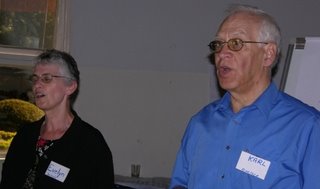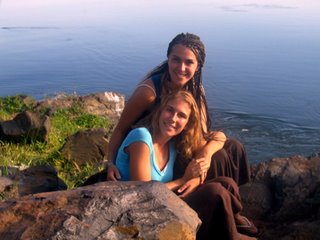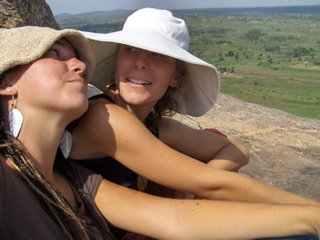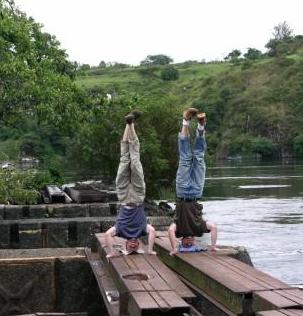by Holly
Cautious optimism characterizes the mood around the peace process for Northern Uganda. That is how I feel anyway. In general, I consider myself a naturally hopeful person, but I want it so desperately for this place that it hurts to allow hope too much liberty—the obstacles to any meaningful peace mean a high risk of disappointment.
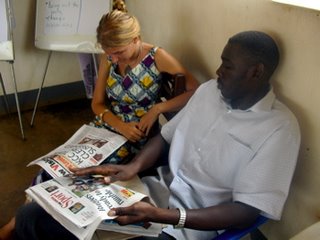
We all follow carefully the daily developments in newspapers that unreliably print shadows of truth. We listen to Kony and Otti on the radio. They both apologized “for everything” on two different days within the past weeks on an Acholi broadcast. And I dared to be thrilled at such watershed statements. At the same time, their voices sounded hollow and the words echoed off of so many atrocities. If they were sorry for the abductions, truly, than why do they still refuse to release the women and children?
Otti has said his “wife and children” are part of him and they will all go home together. The women and children are a shield, a bargaining chip, they are still useful—and they are evidence that though they might be “sorry” they aren’t willing to make things right, not yet.
The irony of having men who have committed some of the worst crimes against humanity raising issues that are actually of legitimate concern and are real political grievances of people in the North is sometimes overwhelming and borders on the absurd. A cartoon in the paper depicted new seats being added to Parliament and Kony sat in one of them with a bloodied machete. A nameplate on the table in front of him read: “Minister of Child Rights.”
I read an editorial this morning (by Charles Onyango-Obbo in the Daily Monitor) He says, “If you ask those of us, who support dialogue to end suffering, but are opposed to these pacts with the devil, what creative alternative there is to that, we don’t have an intelligent answer. That’s the real tragedy of Uganda.” I join him, and many others in the fear that, “sleeping with the devil” could produce some very ugly children.
When I passed through Gulu on the way home from Kitgum on Friday I had a drink with the Public Relations Officer for the UPDF in Northern Uganda. I got the party line, or the military line, instead of the medias interpretation of it. He told me the meeting went well with Dominic Ongwen, (one of the ICC indicted) he said Kony was lying when he said they’d been shot at after the cease-fire by the UPDF. He told me about the one abduction that has taken place since the cease-fire. I asked him if he was hopeful about peace. “Honestly,” he said, “It’s hard to tell, I say it’s still a fifty/fifty chance.” I’ve talked with him before—it’s his job to put the best foot of the military forward, and he does it well. So, I was disheartened by his prediction, if he says fifty/fifty, I’m guessing the UPDF is thinking and planning for thirty / seventy—or worse.
Still, hope finds ways of asserting itself. While we were in Kitgum there were hundreds of rebels walking, sitting under mango trees, waiting for others to join them and then continuing. Presumably they were going to the assembly points. They weren’t hostile. They weren’t causing trouble. They were “friendly.” I don’t know whether to let myself get excited or not. It is so delicate, fragile, and precarious. There are so many variables and so many unknowns.
Right now, Angelina, the Chairperson for CPA is moving with a team of others on a National Reconciliation team. The team is meeting with leaders all over the country and while they discuss and reconcile with each other they are gathering consensus around the messages they want to send to the government, the UPDF, and the LRA and to ordinary people in Uganda. She consulted me just before she left on the most recent leg of her journey to Bunyoro. We discussed the dangers of “unconditional forgiveness,” that can encourage impunity and conceal the truth. We discussed the need to convince the ICC that the crimes which have been committed against humanity—not only the people of Uganda--could somehow be redressed in a local context, in the interests of peace, through Roco Wot and Mato Oput. Angelina is admirably reckless with her optimism. While it strengthens my heart, my mind finds some safety in skepticism that guards me against the disappointment that may come.
